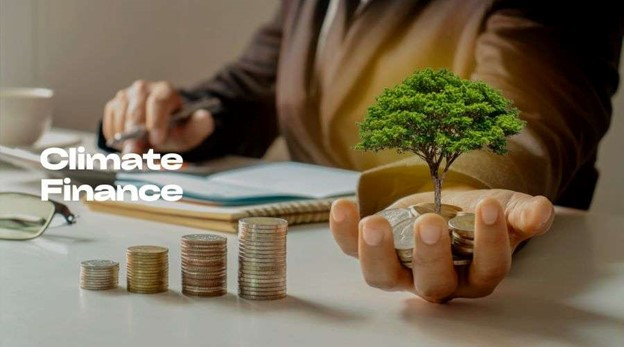Training on Climate Finance
About the Course
The widely accepted definition of Climate Finance, from the World Bank and UNDP, is “Any flows of funds towards activities to help societies to reduce the greenhouse gases and impacts of climate change”. It refers to the flow of funds from various sources, including public, private, bilateral, and multilateral channels, towards climate mitigation and adaptation projects and initiatives.
It encompasses financial mechanisms, instruments, and strategies aimed at addressing the challenges posed by climate change, such as reducing greenhouse gas emissions, enhancing resilience to climate impacts, and facilitating the transition to a low-carbon, sustainable economy. Understanding climate finance is crucial for policymakers, finance professionals, development practitioners, and anyone interested in addressing climate change effectively.
This course provides an introduction to climate change and its related economic and environmental impacts, with a particular emphasis on the role of finance professionals in creating and implementing solutions to the global issues in this space.
Target Participants
Training on Climate Finance is designed for professionals, practitioners, and stakeholders involved in finance, environmental sustainability, development, and policymaking, including but not limited to:
- Government officials and policymakers responsible for climate change and finance
- Finance professionals working in banking, investment, and insurance sectors
- Development practitioners and project managers
- Environmental consultants and advisors
- Corporate sustainability managers and CSR professionals
- Researchers and academics specializing in climate change and finance
What You Will Learn
By the end of this course the participants will be able to:
- Gain a solid foundational understanding of climate change, its drivers, its risks and consequences, and the role of climate finance
- Understand different climate initiatives and related governance and disclosure frameworks
- To explore the roles of different stakeholders, including governments, international organizations, financial institutions, and the private sector, in mobilizing and deploying climate finance
- To equip participants with the knowledge and skills to identify, design, and implement climate finance initiatives and projects
- To foster discussions on innovative approaches and best practices in climate finance, including green bonds, carbon markets, and climate-related risk management
Course Duration
Online 7 days
Classroom-based 5 days
Course Outline
Introduction to Climate Finance
- Defining climate finance
- Importance and relevance of climate finance in addressing climate change
- Evolution and current landscape of climate finance
Key Concepts and Mechanisms
- Climate finance instruments: grants, loans, equity, guarantees, etc.
- Sources of climate finance: public, private, bilateral, multilateral
- Climate finance architecture: Green Climate Fund, Global Environment Facility, etc.
Stakeholders in Climate Finance
- Role of governments and international organizations
- Private sector engagement: banks, investors, corporations
- Civil society organizations
- Community involvement
Environmental, Social, and Governance (ESG) Principles
- ESG factors and financial performance
- Investor preferences and demand for sustainable investments
- ESG incorporation into investment strategies
Carbon Pricing
- Importance of carbon pricing in climate change mitigation
- Impact of Carbon Pricing
- Corporate responses to carbon pricing: emissions reduction targets, carbon pricing internalization
- Role of carbon pricing in achieving long-term climate goals
Climate Finance and Economic Growth
- Relationship between climate finance, economic growth, and sustainable development
- Climate finance as a driver of economic growth: job creation, infrastructure investment, technology transfer
- Trade-offs between short-term economic growth and long-term sustainability
- Financial barriers to climate action: access to finance, affordability, risk perception
- Innovative financing models: climate insurance, blended finance
Challenges and Opportunities
- Accessibility and affordability of climate finance
- Transparency and accountability in funding mechanisms
- Scaling up climate finance and innovative financing solutions
Designing Climate Finance Initiatives
- Project identification and formulation
- Financial structuring and risk assessment
- Monitoring, evaluation, and adaptive management
Policy Implications and Future Directions
- National and international policy frameworks
- Role of climate finance in achieving SDGs
- Emerging priorities and areas for further research and action
Successful climate finance projects and initiatives
- Renewable Energy Investment
- Energy Efficiency Programs
- Reforestation and Afforestation Projects
- Climate Resilience and Adaptation
- Green Bonds
- Community-Based Projects
Training Approach
This course is delivered by our seasoned trainers who have vast experience as expert professionals in their respective fields of practice. The course is taught through a mix of practical activities, presentations, group works and case studies.
Training notes and additional reference materials are provided to the participants.
Certification
Upon successful completion of this course, participants will be issued a certificate.
Tailor-Made Course
We can also do this as a tailor-made course to meet organization-wide need
